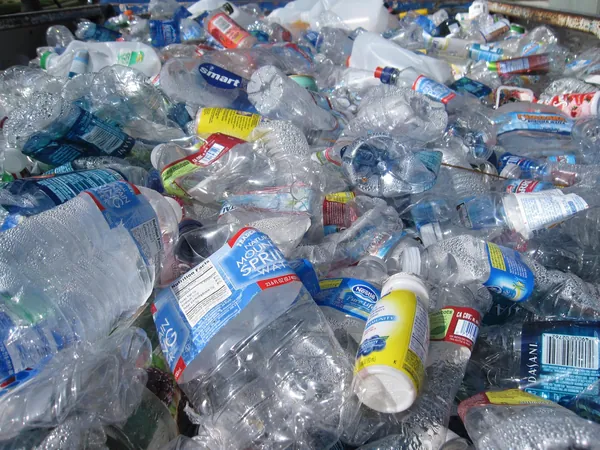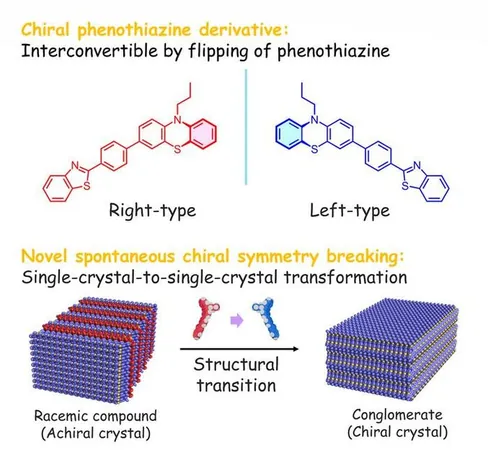
Revolutionary Catalyst Unlocks the Future of Mixed Plastic Recycling!
2025-09-02
Author: Arjun
A Game-Changer in Plastic Recycling!
Imagine a world where the complex hassle of sorting mixed plastic waste could vanish overnight! Thanks to groundbreaking research from chemists at Northwestern University, this vision may soon be a reality. Their innovative plastic upcycling process promises to simplify the recycling of polyolefin plastics—those ubiquitous single-use items that make up nearly two-thirds of global plastic use.
Meet the Unsung Hero: A New Nickel-Based Catalyst!
At the heart of this revolution is a novel, cost-effective nickel-based catalyst. This powerhouse selectively dismantles polyolefins, converting low-value solid plastics into valuable liquid oils and waxes. Think fuels, lubricants, and even candles! This remarkable catalyst can even handle plastics contaminated with harmful polyvinyl chloride (PVC), which has been a notorious hurdle in recycling efforts.
Why This Matters: The Plastic Pollution Crisis
From yogurt cups to shampoo bottles, polyolefins are everywhere. Yet, the recycling rates for these plastics are scandalously low—ranging from less than 1% to just 10% worldwide. This has led to an avalanche of plastic waste clogging landfills and polluting our planet, with plastic lingerings for decades before breaking down into harmful microplastics.
Breaking Down Barriers in Recycling!
One major obstacle in recycling is the painstaking need to sort plastic waste by type. Current methods often require heating plastics to prohibitively high temperatures, consuming massive amounts of energy and leading to inefficient recycling. But that's all about to change with the introduction of this catalyst.
The Science Behind the Magic
By employing hydrogenolysis—a process utilizing hydrogen gas to chop polyolefin plastics into useful hydrocarbons—this new catalyst not only enhances efficiency but dramatically reduces energy input. Unlike existing noble metal catalysts that are scarce and expensive, Northwestern's team focused on affordable, Earth-abundant nickel, resulting in a single-site catalyst that operates at significantly lower temperatures and pressures.
A Surprising Twist with PVC!
In an unexpected turn, the catalyst proves even more effective when exposed to PVC—a plastic usually deemed too problematic to recycle. The research found that PVC contamination actually accelerates the catalyst’s performance, breaking the long-standing belief that such materials are detrimental. This insight could revolutionize the approach to mixed plastic recycling!
Join the Plastic Recycling Revolution!
With the academic world buzzing over this publication in the prestigious journal *Nature Chemistry*, experts believe this innovation could make plastic recycling more efficient, practical, and economically viable than ever before. As we face an escalating plastic pollution crisis, this breakthrough offers a renewed hope for sustainable waste management and a cleaner future. Are you ready for a world where recycling mixed plastics is not just a dream, but a reality?


 Brasil (PT)
Brasil (PT)
 Canada (EN)
Canada (EN)
 Chile (ES)
Chile (ES)
 Česko (CS)
Česko (CS)
 대한민국 (KO)
대한민국 (KO)
 España (ES)
España (ES)
 France (FR)
France (FR)
 Hong Kong (EN)
Hong Kong (EN)
 Italia (IT)
Italia (IT)
 日本 (JA)
日本 (JA)
 Magyarország (HU)
Magyarország (HU)
 Norge (NO)
Norge (NO)
 Polska (PL)
Polska (PL)
 Schweiz (DE)
Schweiz (DE)
 Singapore (EN)
Singapore (EN)
 Sverige (SV)
Sverige (SV)
 Suomi (FI)
Suomi (FI)
 Türkiye (TR)
Türkiye (TR)
 الإمارات العربية المتحدة (AR)
الإمارات العربية المتحدة (AR)